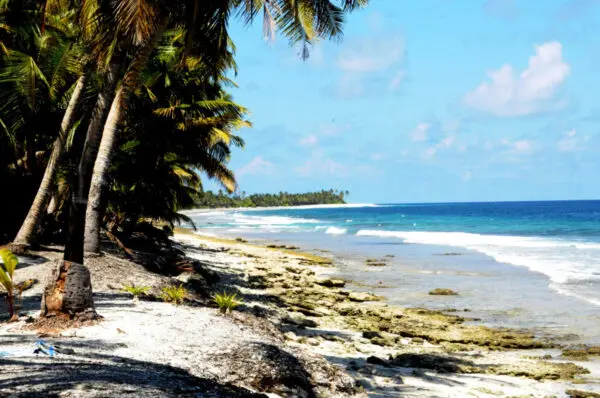Ineke Steinhauer
Senior Advisor Environmental and Social Assessment


The Netherlands Enterprise Agency (RVO.nl) has requested the NCEA to review the Terms of Reference (July 2016) and the ESIA-report (November 2016) for Coastal Protection of the island of Fuvahmulah in the Maldives. The project aims to protect the island (the only island of the Gnaviyani-atoll) against flooding. Flooding would have major negative impacts on crops, households, infrastructure and freshwater supply. In the ESIA various options have been considered, including an onshore revetment (the preferred alternative) and an offshore breakwater. The ESIA identifies the environmental and social impacts of the project and proposes a mitigation and monitoring plan.
In July 2016 the NCEA, upon request of RVO, provided observations and comments on the quality of the draft Terms of Reference for the preparation of a full Environmental and Social Impact Assessment (ESIA) report complying with the EIA Regulations of the Maldives and the Sustainability Framework of the IFC.
In november 2016, the NCEA was requested to review the quality of the ESIA, which was submitted to the EPA on October 31st 2016. The NCEA concluded that the ESIA provides a complete description of the problem analysis, possible solutions, impacts of these solutions and mitigation measures. The report shows that the preferred alternative – the onshore revetment – will be the most effective to solve the problems associated with coastal erosion and possible future chance of flooding. The main environmental impacts from the onshore revetment are expected to occur during construction. To reduce these impacts to a minimum it is essential to implement the mitigation measures that are proposed in the report, in close consultation with stakeholders on the island. A significant permanent and irreversible impact will be the change of the landscape of the existing coastal zone.
In the review advice the NCEA present key observations and recommendations for further development of the project plan, monitoring plan and preparations for construction. The NCEA recommends:
In January 2018, RVO sent additional information to the NCEA with the request to check whether the NCEA observations and recommendations on the ESIA had been sufficiently integrated into the conditions for the contract. This was indeed the case, and the NCEA just gave a few additonial informal comments through e-mail.
In September 2018, RVO asked the NCEA to check whether the following conditions had been met:
The NCEA concluded in an e-mail advice that no. 1 has been fully met and no. 2 only partly.